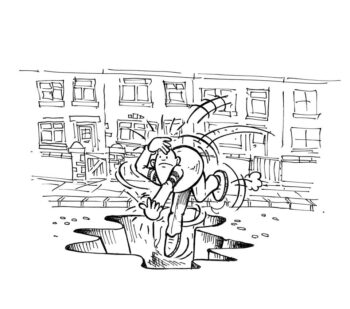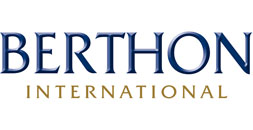Your Local Broker, Internationally
Berthon UK
(Lymington, Hampshire - UK)
Sue Grant
sue.grant@berthon.co.uk
0044 (0)1590 679 222
Berthon Scandinavia
(Henån, Sweden)
Magnus Kullberg
magnus.kullberg@berthonscandinavia.se
0046 304 694 000
Berthon Spain
(Palma de Mallorca, Spain)
Simon Turner
simon.turner@berthoninternational.com
0034 639 701 234
Berthon USA
(Rhode Island, USA)
Jennifer Stewart
jennifer.stewart@berthonusa.com
001 401 846 8404
Yacht Brokerage Bumps in the Road for 2024
It is a well-known management maxim that there are no problems – only opportunities. In 2024, we are looking forward to embracing our full share of opportunities, as the world turns and processes and systems change, as a result of the march of technology and also because of a swathe of new regulations and new ways of doing things as far as international yacht brokerage is concerned.
It has always been the broker’s task to know their market, to understand and be passionate about the yachts that they are selling, and to provide a comprehensive service to both their client, the yachts’ owner, and to deliver an effective service to the buyer. The essential skill for the yacht broker has always been around knowing the yachts, pricing, and effectively managing a transaction whilst providing the correct advice to both sides of the purchase.

The wonderful World Wide Web enables everything to happen much more quickly, and information can be delivered, and deals can be managed in a short period of time with the likes of Mr DocuSign and use of soft copy contracts and the rest. The British Registry for example, operates entirely in soft copy today. They only need a PDF of a correctly executed Bill of Sale and supporting paperwork to change title, and long gone are the smart hard backed blue Registration document annotated by the Registrar in longhand, which later morphed to a printed Registry Certificate. Today you receive a PDF that you are asked to print out and keep amongst the ship’s papers.
Fantastic. It cuts down time, makes things more seamless and saves many trees…
However, with the delivery of all this information comes the Tower of Babel effect with lots of inaccuracies and misleading data. Worse than this, there is ample opportunity for fraud with people trying to capture your bank details, re-direct funds into an account controlled by them from which they can syphon off yacht sale proceeds, and dive into your details and accounts as well. We are now well versed in checking bank details verbally. It seems that every month there is a new scam, and a new way that clever on-line thieves seek to interrupt bonafide transactions. Of course, this is not unique to yacht brokers but keeping on top of the issues is most definitely a bump in the road.
Another issue is that of knowing whom you are dealing with. KYC – three letters that instil fear into the bravest of us – Know Your Client. With a repeat business record of around 55%, for a lot of the transactions that we undertake we know our client well. We have probably dined with them, have certainly followed their yachting programme for many years and know their immediate family and friends. In today’s environment this is simply no longer enough, and so passports, utilities bills and a short biography of how they came by their yacht money (source of funds is the catchy term) are all nonetheless needed, together with an understanding of where the actual funds being used for the purchase come from.
Fortunately, these checks are required whether you are buying a Ferrari or an FPB and so our clients are used to invasive questioning which is now part of everyday life. This ongoing bump in the road is one that will not go away.
For new clients we start from the beginning. Mr Google tells you much, but direct questions now must be asked. The British custom of not discussing money is no longer OK, and of course the plethora of misleading information on the web means that none of this can be relied upon, except to gather some colour to the picture.
We also use Experian checks extensively to provide a financial footprint, in an unobtrusive way to assist with this bump in the road.
Of course, there are reams of regulation and suggestions of who is high risk and what you should do and how you should check stuff. Many of the yachts that we sell are owned by companies and buyers are corporate too. Credit checks help but getting to the holy grail of UBO – which sounds like an unfriendly Dalek, but is of course the ‘Ultimate Beneficial Owner’ has always been key, and for this task, turning detective and asking all the questions is a vital part of the yacht brokerage role today.
Then of course we have PEPs. The guys at Coutts will tell you all about these. ‘Politically Exposed Persons’ – and this is quite a bump in the road, together with potential terrorist organisations and all the other people who have made their money the uncool way and are therefore most certainly not yacht owner material. And we could bore you with more…
At Berthon we are super cautious, but we are fortunate that we have a lovely client base who are passionate about yachting and with whom we have personal contact, and we take the time to know them. Selling things to and for people with whom you don’t have that personal contact makes it much harder, we are sure. We are privileged to work in an industry that is about passion and not about paperclips or widgets, where the product is merely a commodity. This makes it easier to assess the potential risks.
We have always been approached, normally by email by those who in their second contact offer to pay the asking price if only they can have our client account details and to send someone to pick up the goods. The bump in the road for 2024 is the increasingly sophisticated way in which scammers seek to draw brokers into their web with well-crafted emails and a lot of technical knowledge. As ever however, personal contact is the best way to weed them out, as on the passion about yachting barometer – they simply don’t cut it.
With all these risks all around, due diligence is important, and the regulations needed, if testing. Firewalls and protocols all play their part in fighting the diligent fight and we are up for the challenge in continuing to deal with this bump in the road.
In amongst all this, the client base is changing. As with so many industries, Covid-19 brought us the Covid bounce and a massively buoyant market. As our feet once again touch the floor and we carry on working within a more normal marketplace, we realise that this additional demand for yachts has changed the profile of the modern yachtie fundamentally. The influx of new entrants to the sport has been amazing. Even more amazing is the fact that they loved the experience and that many of them are continuing their love affair with our sport. The industry has been energised by them, but we must understand and deliver on yachting as they want it to be.
In the olden days, there were yacht buyers and yacht owners, united by their love of boating and being out on the water. Now we have Baby Boomers, Generation Y, Generation X and Generation Z. Of course, in the twenty first century we love labels, and essentially these are people passionate about the water, many of whom are new entrants to the sport. However, the new bump in the road is that we have to adapt to their needs, for if we ask them to adapt to ours, we will soon be out of work yacht brokers. Elsewhere in this publication we have written about fractional yacht ownership and different ways of yachting. We need to be nimble and deliver these new options to our lovely new labelled client base.
Good communication is one of the key things that enable people to spend more time yachting. The opportunity to stay in touch with the office, attend the odd virtual meeting and to keep up with what’s happening, delivers for many clients a freedom pass and opportunity to spend more time on the water. Here we must thank the most excellent Starlink, which is as common aboard yachts now as the Yeoman plotter was in the 1990s. Definitely not a bump in the road and something that is actively aiding yacht sales – so thank you Mr Musk.
The next bump in the road is the gift that simply doesn’t stop giving – supply chain disruption. During and after Covid it was a shocker and everyone has waited for things to get back to normal. There have been improvements but in general wait times are still dreadful and yacht sales are put at risk by very long waits for replacement parts that are highlighted by surveys that take months, not weeks to turn up. Batteries no longer on call off and must be manufactured – two and half months, engine parts made in batch by manufacturers and now out of stock with a scheduled batch production many months away, new generators on a year’s wait. The list is long and very irksome. Of course, the issues in the Red Sea do not help this and we expect to be trying to find work arounds for 2024 and yes, we will lose sales over it.
Marina berths are another bump in the road that does not improve. Our offices in Palma de Mallorca in 2023 have struggled with berthing in Mallorca as prices rocket skywards and availability plummets. From our new sales office opposite the Club de Mar we see the huge cranes and hopeful signs of construction which with luck will herald a new facility – and more berths! On the Solent in the UK, there seem to be simply too many yachts for the berths available and in Newport, Rhode Island, owners of 60 footers are dry sailing them as there is no space! This bump in the road means that if a client is specific about where they want to keep their new yacht, if they don’t have access to a berth, then the purchase of a yacht is rather cart before horse, and needs to be urgently addressed.
Insurance is another bump with some underwriters out of love with the yachting industry for its minute size, and uncanny ability to provide massive liabilities from fire, hurricane and the like, and they are therefore not excited about providing cover. This bump in the road will, we hope, ease slightly in 2024, but yacht buyers do well to think about insurance cover when they first see the yacht of their dreams and not 24 hours before the completion of their purchase.
Aside from this, a permanent bump in the road is that of standing rigging on sailing yachts. Yacht owners who ignore their 10 year plus old rigging as a problem when they sell on the basis that their insurers have the yacht covered, are at risk of losing their sale. If the surveyor recommends replacement of the wires or full service of the rod (which will be a requirement from his PI insurers) then the buyer’s insurer will ask for this work to be done. The myth that the buyer can take over the old owner’s insurance is just that. They are a good choice as they already know the yacht, but the new owner’s insurance will be a new policy and they will read the survey report and we have seen many occasions when standing rigging that was fine for the seller, suddenly becomes rancid and requiring immediate or near term renewal for the buyer.
So masses of change stemming from the Pandemic and a jolly bumpy road for yacht brokers (although fortunately with fewer potholes than on the UK road system as the scribe writes). Some of these bumps are long term but others are born of the Pandemic and also from the increased prominence of the web and the way that its tentacles have stretched into every part of life – even yachting…

